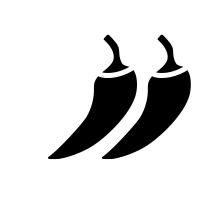Digital humanities is an interdisciplinary field that combines traditional humanities disciplines (such as history, literature, and philosophy) with digital tools and methods for research, analysis, and communication. It involves using digital technologies to enhance the study of the humanities, including the creation, preservation, and dissemination of cultural artifacts and knowledge.
Some of the areas of focus in digital humanities include text analysis, data visualization, digital publishing, mapping, and digital archiving. Scholars in the field use a variety of digital tools and techniques to analyze and interpret historical and cultural artifacts, including digital archives, databases, and other forms of digital media.
Digital humanities can involve collaborations among scholars from a range of disciplines, including computer science, information science, and library science.
| |
Debates in the Digital HumanitiesLearn about Digital Humantities through this hybrid print/digital book series. | FreeBrowser | 
|
Digital Humanities, Learning |
| |
The Programming HistorianLearn skills and technologies related to digital humanities through Programming Historian's tutorials. | FreeBrowser | 
|
Digital Humanities, Learning |
| |
The Digital Humanities Literacy GuidebookGet started with the Digital Humanities using this web-based handbook for the field. | FreeBrowser | 
|
Digital Humanities, Learning |
| |
Digital Humanities NowLearn more about digital humanities through this open web publication that highlights scholarship in the digital humanities. | FreeBrowser | 
|
Digital Humanities, Learning |
| |
Digital Research Training Courses (University of London)Explore a mixture of of free and fee-based courses exploring the practice of digital historical research and other related digital humanities practices. | Free, One-time costBrowser | 
|
Digital Humanities, Learning |
| |
Digital Humanities 201 course (UCLA)Explore Miriam Posner's course on the digital humanities including readings, assignments and guides. | FreeBrowser | 
|
Digital Humanities, Learning |
| |
Museums in the Digital Age course (UCLA)Explore Miriam Posner's course on how the digital age has shifted museum services including readings, assignments, and guides. | FreeBrowser | 
|
Digital Humanities, Learning |
| |
Systems and Infrastructures course (UCLA)Explore Miriam Posner's course on the relationship between infrastructures and information including readings, assignments and other resources. | FreeBrowser | 
|
Digital Humanities, Learning |
| |
TaDiRAHExplore and utilize a taxonomy for digital research activities in the humanities. | Open Source, FreeLinux, Mac, Windows | 
|
Digital Humanities |
| |
Data Primer: Making Digital Humanities Research Data Public Review data curation and management practices for digital humanities researchers.
|
FreeBrowser | 
|
Digital Humanities |
| |
Canadian Writing Research CollaboratoryThe CWRC is an open access research repository where researchers can upload their own digital scholarly documents, use digital research materials and access open source coding tools. | FreeBrowser | 
|
Publishing, Repository, Digital Humanities |
| |
Oxygen XML EditorAuthor, edit, and validate XML documents (Including TEI) | Subscription, Academic LicensingLinux, Mac, Windows | 
|
Publishing, Digital Humanities |
| |
ScalarAuthor and publish your born-digital project, embedding multimedia files alongside your writing for free. | Free, Open SourceBrowser | 
|
Digital Storytelling, Publishing, Digital Humanities |
| |
Text Encoding InitiativeUse this popular XML-based encoding language to represent complex information about text structure and meaning. | Free, SubscriptionBrowser | 
|
Digital Humanities, Programming |
